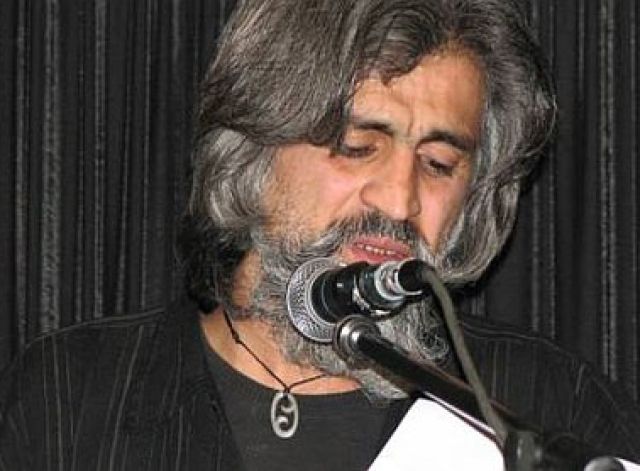
These poems by Iranian poet Mohsen Soltany Zand mark the chasm that has opened around and within us.
A century ago, the war poems of World War I conveyed the futility and horrors of war. By doing so, they expressed a clinging to life.
For instance, Italian poet Giuseppe Ungaretti wrote “lying a whole night/beside a butchered comrade/never have I clung so to life”.
This clinging and choosing of life, persisted even when it seemed the nuclear threat of “mutually assured destruction” was imminent.
No more. Now the global war of terror is casting out everything inside us. Zand makes this loss palpable through his experience of being a refugee in the remote Australian immigration detention centre at Port Headland, during the Howard-era.
The soft mood of the opening poem, “Love”, is quickly dispelled by the next. In “Drought”, Zand is overwhelmed by the inversions he sees, of “having watched while others dreams/have been sucked from them”.
The centrality of these experiences is a shock. You would expect that the poetry of someone who had escaped persecution and violence, would be dominated by reflections on their homeland.
“The Only Hope After God” shows there is a deeper betrayal and punishment in store for refugees who make it to Australian shores. They become “the innocent who have kissed the noose of Australian democracy”.
It is a cascade of ironies.
In “Realpotlitik”, Zand writes of “a shark that is helping rescue boat people ... democracy in the oil ... humanity in the bullet”. Everything is reversed, hope is overturned, and the only escape is death: “I am obsessed with death/I wait for it like crazy”.
In “Difference”, Zand contrasts the pain he feels as a “captive of my destiny”, against the pleasures experienced by those who heads spin “in a cloud of desire”.
How must it feel to have been betrayed so thoroughly, to have had all your dreams sucked out, and once you have lost all hope, to eventually be told you are now free?
I can imagine Zand writing the poem in a shopping mall: “I’m a wandering zombie/you are a dancing fool.”
It is not a book of unrelieved gloom. The strength of the poetry in conveying the utmost desolation and abandonment also stirs up a sense that, having identified and defined the evil of these times, it is possible to do something about it.
For instance, “The Pen” is the antithesis of poetry: “The pen is more arrogant than ego ... The pen is more insidious than shame”.
Yet, in “My Heroic Pen” it becomes the champion “of my knotted thoughts” in the battle “for the shape of meaning/against the armies of disbelief”.
The cruelty of immigration detention expressed in “Numb(er)” led me to ring Zand and ask if he had heard of STARTTS (Service for the Treatment and Rehabilitation of Torture and Trauma Survivors ). He said they were important to him in working through his experiences, and he does volunteer work with them.
He added, “but there is no cure for this”.
Booker Prize-winning author Thomas Kenneally called Zand the “W.B. Yeats of our time”. He is right.
Yeats asked in “The Second Coming”, “what rough beast, its hour come round at last/Slouches towards Bethlehem to be born?”
In 2003, Green Left Weekly published “The Only Hope After God”. Zand wrote that refugees found themselves in the flames, and refugee rights supporters “are the ones who are left”, that through us, refugees hear “the voice of conscience”.
Seven years and a change of government later, our voices have failed them. So, in 2010, a Tamil asylum seeker writes: “They ordered/Don’t go out even to pray…/Don’t explain your situation to/Others”.
So, have we become the rough beast? In this desert of heat and lies, too flaming right, mate.